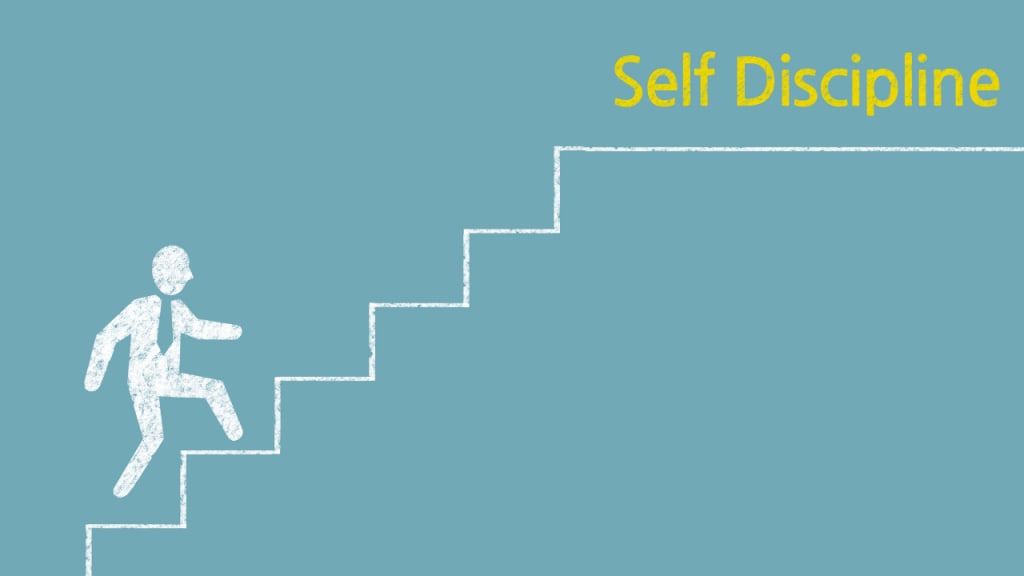"Mastering Self-Discipline: The Key to Achieving Your Goals"
Self Discipline and Self Care

Self-discipline is the ability to control one's own behavior and actions in order to achieve a goal or objective. It is a crucial aspect of achieving success in any area of life, whether it be in your personal life or professional career. Without self-discipline, it can be easy to fall into the trap of procrastination and lack of motivation, which can ultimately lead to failure in achieving your desired outcome.
Benefits of Having Self Discipline
One of the key benefits of self-discipline is that it allows you to set and achieve your own goals. When you have self-discipline, you are able to focus on the task at hand and not be easily distracted by other things. This allows you to stay on track and make steady progress towards your goal. Additionally, having self-discipline helps you to be more resilient when faced with obstacles or setbacks. Instead of giving up, you are able to push through and keep going, knowing that you will be able to achieve your goal in the end.
Another important aspect of self-discipline is the ability to control your impulses and emotions. We all have moments when we feel like giving in to our impulses and doing something that we know is not in our best interest. However, with self-discipline, we are able to resist these impulses and make choices that align with our goals and values. This can be particularly important in situations where we are faced with temptations, such as eating unhealthy food or skipping a workout.
How to Develop Self Discipline?
To develop self-discipline, it is important to start with small goals and work your way up. For example, if your goal is to exercise regularly, start by committing to a 5-minute workout each day and gradually increase the time as you become more comfortable with the routine. It is also important to be consistent in your efforts and to make sure that you are setting realistic goals.
Another way to develop self-discipline is to find ways to hold yourself accountable. This can be done by setting deadlines for yourself, or by finding a accountability partner who can help keep you on track. Additionally, it can be helpful to keep a journal or to use a goal-tracking app to track your progress and keep yourself motivated.
Self-discipline is not something that can be developed overnight. It takes time, patience and practice to master. However, with consistent effort and a commitment to your goals, it is possible to achieve the level of self-discipline needed to achieve your goals. Remember that self-discipline is not about being perfect, it's about making progress and learning from your mistakes.
Self-discipline is a crucial aspect of achieving success in any area of life. It allows you to set and achieve your own goals, control your impulses and emotions, and stay on track despite obstacles and setbacks. By setting small, realistic goals and holding yourself accountable, you can develop the self-discipline needed to achieve your desired outcome. With consistent effort and practice, anyone can master self-discipline and achieve their goals.
Self Discipline and Self Care
Self-discipline and self-care are two important concepts that are often intertwined. Self-discipline is the ability to control one's own behavior and actions in order to achieve a goal or objective, while self-care is the practice of taking care of one's own physical, mental, and emotional well-being.
Self-discipline is important for setting and achieving goals, but it can also be demanding on the mind and body. Self-care helps to balance the demands of self-discipline by ensuring that we are taking care of ourselves physically, mentally, and emotionally. This can include things like getting enough sleep, eating healthy foods, engaging in regular physical activity, and practicing stress-management techniques like yoga or meditation.
Self-care is also important for maintaining motivation and preventing burnout. When we are not taking care of ourselves, it can be easy to become demotivated and lose sight of our goals. Self-care helps to recharge our batteries and maintain a positive attitude and energy levels, which in turn helps us to stay motivated and on track to achieving our goals.
In practice, self-discipline and self-care often go hand in hand. For example, making a commitment to exercise regularly is an act of self-discipline, but also an act of self-care as it improves our physical and mental well-being. Setting aside time for self-care activities like reading, or taking a walk in nature are also forms of self-discipline because it requires us to prioritize these activities and to make them a regular part of our routine.
Self-discipline and self-care are both important for achieving success and maintaining well-being. Self-discipline helps us to set and achieve goals, while self-care helps to balance the demands of self-discipline and ensure that we are taking care of ourselves physically, mentally, and emotionally. By incorporating both self-discipline and self-care into our lives, we can achieve our goals while also maintaining our overall well-being.






Comments
There are no comments for this story
Be the first to respond and start the conversation.